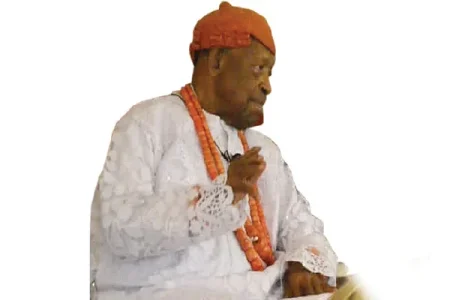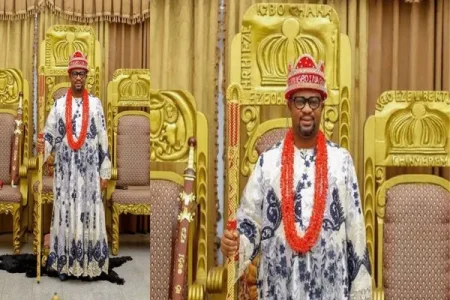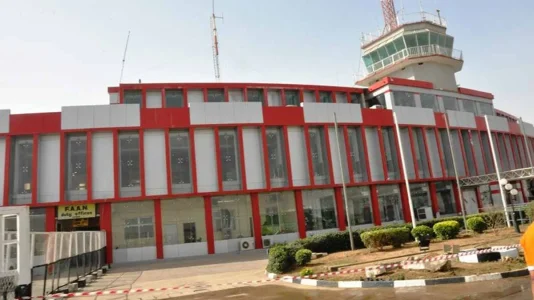
Asagba of Asaba, Prof Chike Edozien, opened up about his feelings on reaching the remarkable milestone of his centenary anniversary. As the centenary celebration approaches, the monarch expressed profound gratitude for being alive and healthy to mark this significant occasion, quoting Bishop Chukwuma's perspective that 100 years is a time for preparation, with the real journey taking flight at 120.
Reflecting on Asaba's historical significance, the Asagba shed light on the town's evolution over the years. Notably, he acknowledged Asaba's role as the first administrative headquarters of the Royal Niger Company, drawing attention to its transformation from that period to the present day.
Providing a glimpse into the history of Asaba's kingdom, Prof Chike Edozien detailed how the town originated over 500 years ago, with the first king being Nnebisi. Following Nnebisi's demise, the town experienced a division among his grandchildren, leading to the creation of five independent Ebos (quarters) without a singular leader for nearly 400 years. The eventual establishment of the title of Asagba of Asaba aimed to unify the town, creating a single monarch for the five units.
Expressing a personal ambition since assuming the role of Asagba, Prof Chike Edozien revealed his desire to complete the unification of the land, turning Asaba into a kingdom with both one king and one land. The ongoing process is seen as a crucial step towards the realization of a unified and cohesive nation.
The conversation then shifted to the monarch's advice for Nigerian leaders on maintaining national unity. Drawing from historical insights, he pointed out that during the colonial era, the British introduced the concept of indirect rule, with traditional rulers playing a crucial role in local governance. Prof Chike Edozien emphasized the need to reinstate a similar system, suggesting that recognition of traditional rulers as true local governments could address contemporary challenges, including insecurity.
Discussing his proposal for constitutional amendments, the Asagba highlighted the importance of restructuring the current local government system, asserting that a shift towards the model of indirect rule could enhance security by leveraging the knowledge of traditional rulers.
Addressing the persistent issue of ethnic tension in Nigeria, the monarch shared his personal experiences of living harmoniously with individuals from diverse ethnic backgrounds during his time as the Dean of the Faculty of Medicine. Proposing a solution to reduce ethnic tensions, he suggested the creation of autonomous units within Nigeria to ease the powerful matter of ethnicity.
In concluding remarks, Prof Chike Edozien emphasized the potential greatness of Nigeria and the need to combat corruption, study nation-building in universities, and foster a change in attitude to achieve development. He urged Nigerians to take pride in their nationality while advocating for a comprehensive review of the constitution as a fundamental step toward national cohesion and progress.




